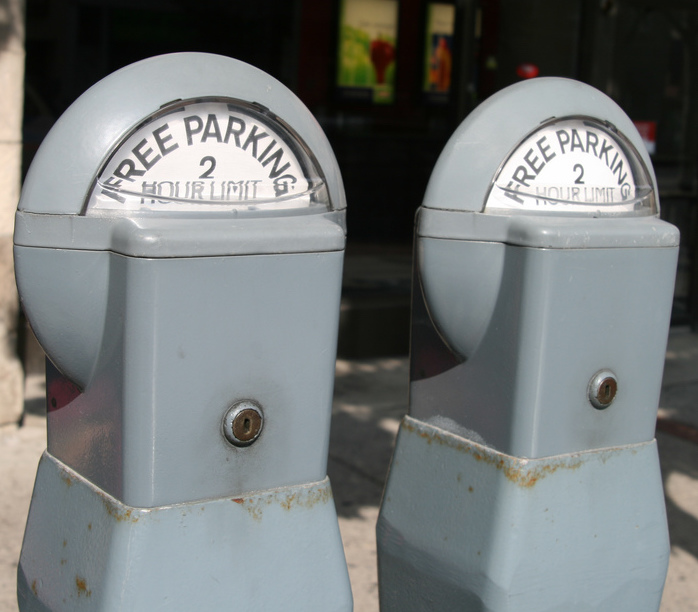Business Journal Editor Westergaard Flubs the Business of Parking
After reading a column by Neil Westergaard in today’s Denver Business Journal, you have to wonder if he’s ever bothered to brush up on the basic economics of transportation and planning policy. The piece careens from the dread of density to eradicating “the bums” from the 16th Street Mall, then finally settles on the need for more free parking downtown.

A few snippets from the article:
Or perhaps people fear the mayor and city council want a city of high-density, high-cost, high-rise urban apartments that only rich out-of-staters can afford to live in.
Based on the city’s decisions of late, it looks like city leaders want Denverites to get around not in private automobiles, but rather on bikes, buses, tiny rental cars and Uber.
Or, how about making the parking meters free downtown after, say, 7 p.m.? If the city truly wants people downtown at night, why does it have that fleet of extraordinarily efficient meter maids cruising around until 10 p.m. writing tickets?
Westergaard wants to get more people downtown, but making curbside parking free will have the opposite effect, as the research of former UCLA professor Donald Shoup has shown. Free parking leads drivers to squat in a space, deterring turnover and shrinking the customer base for local businesses (see: LoDo on a Sunday). While the lucky drivers squat, others add to congestion by circling the city, looking for a spot.
Parking spaces are not a birthright, they’re a scarce commodity that should be priced accordingly. Shoup recommends pricing on-street parking spaces to maintain about one empty space per block. That way, there’s always a space available to drivers in search of a spot, and they don’t cruise fruitlessly in search of parking. You’d think the city’s leading business publication would get behind charging for a commodity based on market forces.
That’s exactly what Seattle does. The Seattle DOT is in the middle of replacing its old-school parking meters with smart meters that adjust pricing based on the hour of the day. The solution, which spurs economic activity, is driven by data — not paranoia that the government is trying to take away your car.
Stephen Fesler of The Urbanist reports:
The paid parking program is managed on the basic principles of supply and demand. With a limited number of available parking spaces and inconsistent demand throughout areas and time, SDOT uses price and time limits to manage how consumers choose to occupy space and smooth out utilization. There are a number of practical reasons for managing parking in this way:
- Help users find parking easily within a close walking distance of their intended destination(s);
- Turnover of spaces so that other users can access an area for business and boost economic activity;
- Reduce traffic congestion, wear and tear, and noise resulting from vehicles circling for parking spaces; and
- Conserve fuel and reduce vehicle emissions in the search for parking.
At $1 per hour, parking rates in downtown Denver are absurdly low. Rates in Seattle range from $1 to $4 per hour, depending on demand.
I spoke with John Desmond of the Downtown Denver Partnership, who said downtown’s parking policy needs to be re-examined.
“We as a city really need to analyze this comprehensively based on demand and utilization of existing spaces, and study pricing strategies that are currently in place,” Desmond said. “On-street parking is a public resource that we need to figure out how to best utilize for the maximum public good.”
Making a campaign promise to charge less may have helped John Hickenlooper get elected mayor in 2003, but Denver is a different city now, and parking policy needs to catch up with best practices in other cities, whether Westergaard likes it or not.


